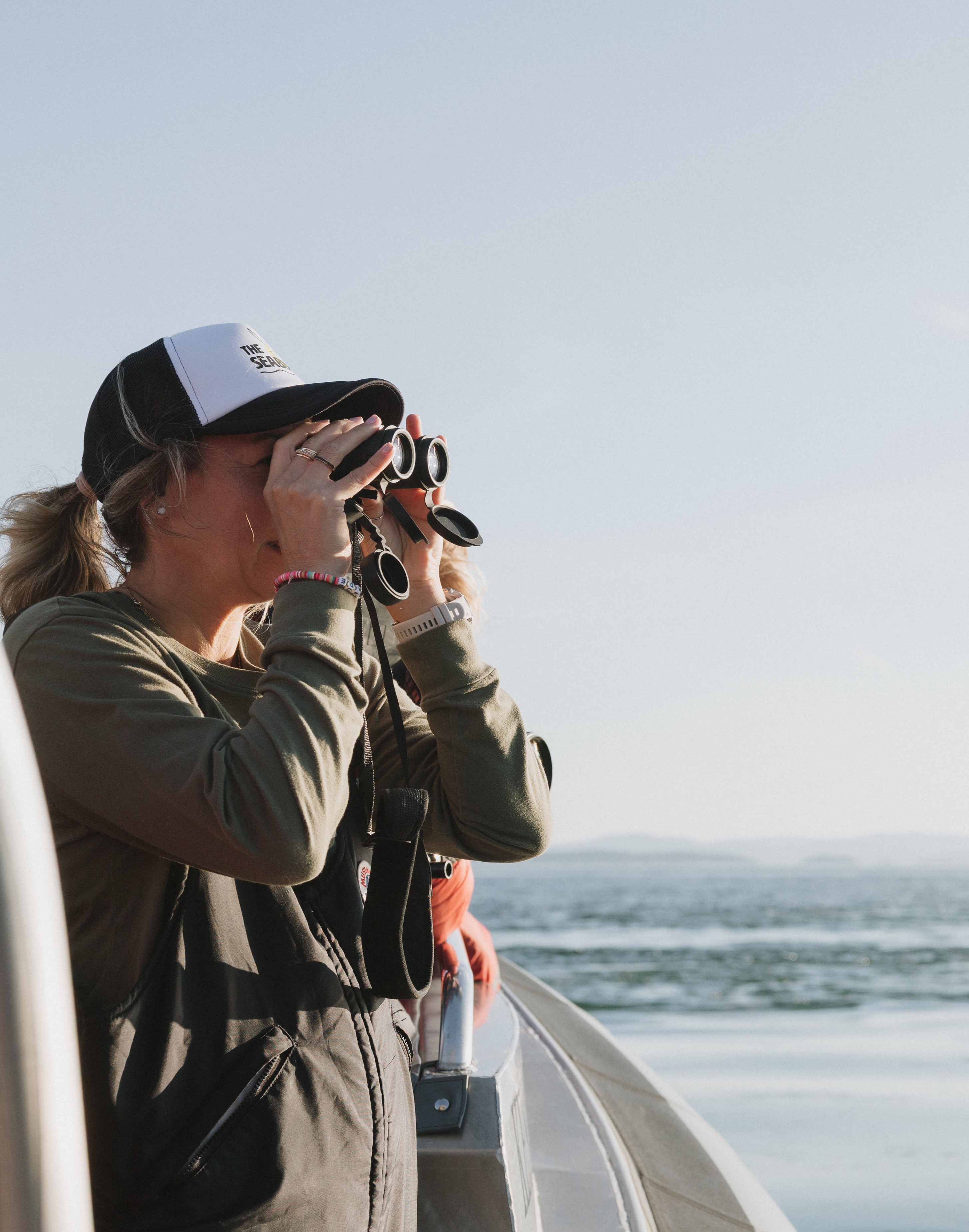Date: November 11, 2025
Location: The Arctic Fjords
Weather: Crisp cold, epic orange sunrise, pulsing auroras
State of Mind: Pure, unadulterated joy
There are days in life that you know, even as you’re living them, will be etched into your soul forever. Days you don’t experience as minutes or hours, but rather as a collection of perfect, profound moments strung together by a thread of pure magic. November 11, 2025, in the fjords of Arctic Norway, was one of those days for our Seabirds squad.
Sunrise and the Spirit of Matriarchs
The day began in the most Arctic way possible: with that otherworldly, orangey-glowy light that etches into your soul. We were up before the sun to film scenes for our upcoming documentary, Matriarchs, produced by the fantastic team at Reel Earth Films.
Our director, the brilliant Katie Wardle, was there, camera in hand, guiding Ashley and I through the absurd and hilarious process of getting into drysuits with some semblance of grace. She’s wildly talented, and I have faith that she helped us look the least sausage-stuck-in-its-casing as possible.
The film, Matriarchs, features our motley crew of badass women and the whales we follow and love. It also goes beyond that, showcasing powerful connections, shared grief, and resilient communities—themes that resonate as deeply for humans as they do for orcas.
To my delight, as the rest of our team came up to the deck, a few started a spontaneous Cha Cha Slide! All we needed were maracas and a conga line to make my drysuit dancing dreams complete. Others took badass expedition pictures to showcase what a gorgeous place we get to explore in.
The Baitball Drop: When the Ocean Lifts Its Veil
Fueled by that sunrise energy, we rushed to the zodiacs (somehow, we’re always a little bit late, even with an hour head start). On the water, the fjords were quiet. Our incredible guides, Rinie and Szymon, watched the water with expert patience.
It paid off.
First, the birds started diving more erratically. Then, the water started jumping–the herring. A baitball!
Our guides positioned us right in the heart of the action. Herring swirled in a shimmering silver vortex beneath our fins. Ashley deployed the hydrophone—a "once-in-a-lifetime capture" for our Blue Echo acoustic database. Those of us in the water glued our masks to the surface, watching orca work in magnificent synchrony, herding the fish with their white bellies and the fjord walls in a breathtaking display called carousel feeding.
And then, the impossible happened.
A jagged, huge white shape emerged from the deep. It wasn't the familiar rounded white of an orca’s eyepatch or saddlepatch. It was bigger, longer, and coming right at us. Before my brain could form the word, it was there: a massive HUMPBACK WHALE, lunging up through the herring ball, mouth agape, benefiting from the orcas' hard work!
The screams behind me—pure, unfiltered shock and joy—echoed in the water. “OH MY GOD! HOLY F*CK!” My head darted up and down with this gentle giant as it descended for another gulp. It wasn’t done! It swam off and lunged again, to more screams of jubilation. Later, a teammate would confess she “definitely used her diaper” in that moment. I get it. It was that monumental.
My friend Ambar Wortham, with whom I’d shared that whale magic, later described it perfectly: “You are lifting the veil of the divine right here.” She’s right. We were witnessing the raw, unfiltered dance and beauty of nature, a privilege so few ever experience.


